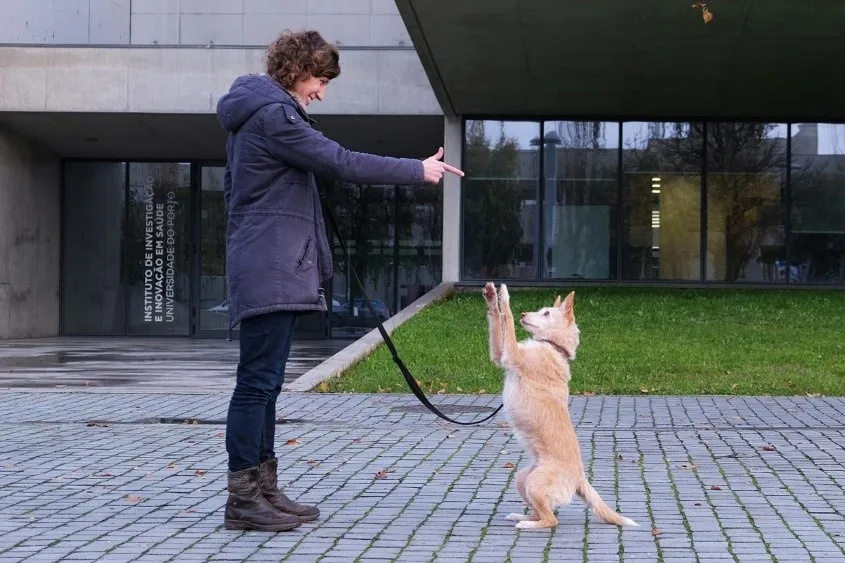Dogs trained using methods involving punishment may have higher stress levels compared to dogs trained with reward-based methods, a new study suggests.
Researchers observed the behaviour of 92 companion dogs from 7 dog training schools in Portugal.
The schools employed either aversive methods, reward methods, or a combination of both. An aversive school mainly used so-called positive punishment – including things like turning the back to the dog as soon as they jumped or started to mouth, and stopping to walk if the dog was pulling on the leash – and negative reinforcement to train.
Reward method training focusses on rewarding desired behaviours, like giving a treat whenever the dog accurately follows a command.
All schools used their own methods to train standard behaviours: sit, lie down, stay, come when called, heel etc.
Read more about dogs:
- Your dog's brain understands words like a one-year-old child
- Dogs perceive their owners' preferences (but do their own thing anyway)
- Dog personality test assesses how our best friends change with age
The researchers filmed training sessions so that they could identify stress-related behaviours in the dogs and their overall behavioural state, such as whether they looked tense or relaxed.
The team also tested saliva samples for the stress-related hormone cortisol.
According to the study, dogs trained using aversive and mixed methods displayed more stress-related behaviours, including crouching and yelping.
The animals trained using these methods also showed greater increases in cortisol levels after training, than dogs trained with rewards.
To measure the dogs’ underlying emotional state, the researchers also conducted a cognitive bias test in an unfamiliar location outside of the dog’s usual training environment with 79 of the dogs.

Ana Catarina Vieira de Castro from the University of Porto, Portugal, and colleagues found that dogs from schools using aversive methods responded more pessimistically to ambiguous situations compared with dogs receiving mixed-or reward-based training.
The researchers say previous survey-based studies and anecdotal evidence has suggested that punishment-based training techniques may reduce animal welfare. This study is the first systematic investigation of how different training methods influence welfare both during training and in other contexts.
“This is the first large scale study of companion dogs in a real training setting, using the types of training methods typically applied in dog training schools and data collected by the research team,” wrote the authors of the study, which was published in the Plos One journal.
“The results suggest that the use of aversive training methods, especially in high proportions, should be avoided because of their negative impact on dog welfare.
“These findings indicate that aversive-based training methods, especially if used in high proportions, compromise the welfare of companion dogs both within and outside the training context.”
Reader Q&A: Why are little dogs so much more annoying than big dogs?
Asked by: Tamsin Nicholson, Warwickshire
Anecdotally, it seems that small dogs are yappier, more excitable and more aggressive, and genetic differences between breeds may be at play here. However, a 2010 survey of 1,276 dog owners in Austria found that the owners of smaller dogs may be at least partly to blame, as they tend to give their dogs less attention and be less consistent with obedience training.
Dogs are pack animals, and when their owners are not assertive enough, the dogs often assume the leadership role, resulting in louder, more aggressive behaviour.
Read more:
